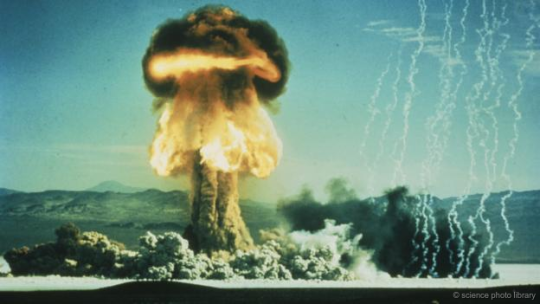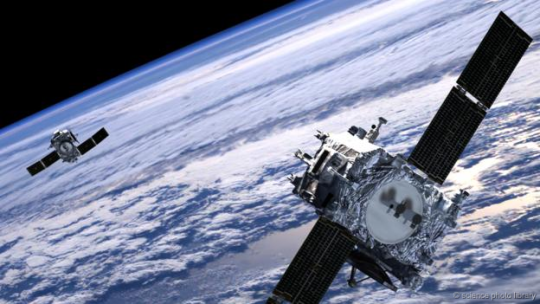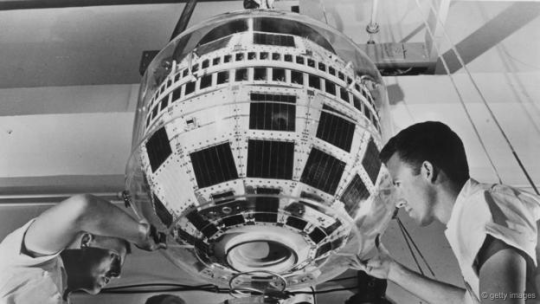A Cold War Nuclear Bomb Test Fried Satellites

Photo: Science Photo Library
The BBC reported the recently unclassified story of “The Cold War nuke that fried satellites.”
On 10 September 1962 an extraordinary memo passed across the desk of British prime minister Harold Macmillan. The confidential document detailed the events leading up to the failure of the UK’s first satellite, Ariel-1.
This spacecraft – a joint venture with the United States – had been launched in April that year to investigate the Earth’s upper atmosphere and study the effects of X-ray radiation from the Sun. This scientific satellite had performed faultlessly until transmissions ceased suddenly on 13 July.
The date of Ariel-1’s demise was no coincidence.

Photo: Science Photo Library
The satellite failed four days after the US detonated a 1.4 megaton nuclear warhead, in an experiment known as Starfish Prime, high in the atmosphere 400 kilometres (250 miles) above the Pacific Ocean.
The explosion – the world’s most powerful high altitude nuclear test – created an electromagnetic pulse (EMP) strong enough to disrupt global radio communications and even blow out streetlights on the ground in Hawaii. It also created a new (temporary) radiation belt around the Earth and it was this that did for Ariel-1.

Starfish Prime (Photo: Getty Images)
British government documents detailing the fate of the satellite remained locked away for 50 years. Reading through a copy of the file stamped ‘secret’ in red letters today, it is clear why: Nasa realised almost immediately what had happened to the satellite but the UK was, embarrassingly, kept in the dark.
When British officials finally pieced together the full story, it fell to science minister, Lord Hailsham, to write to the Prime Minister. His 1962 memo – typed over two pages – relates the saga in some of the most florid, and appropriately Shakespearean language, to ever grace a government document.
Read the rest of the fascinating article which includes speculation about modern threats from EMPs at BBC.
